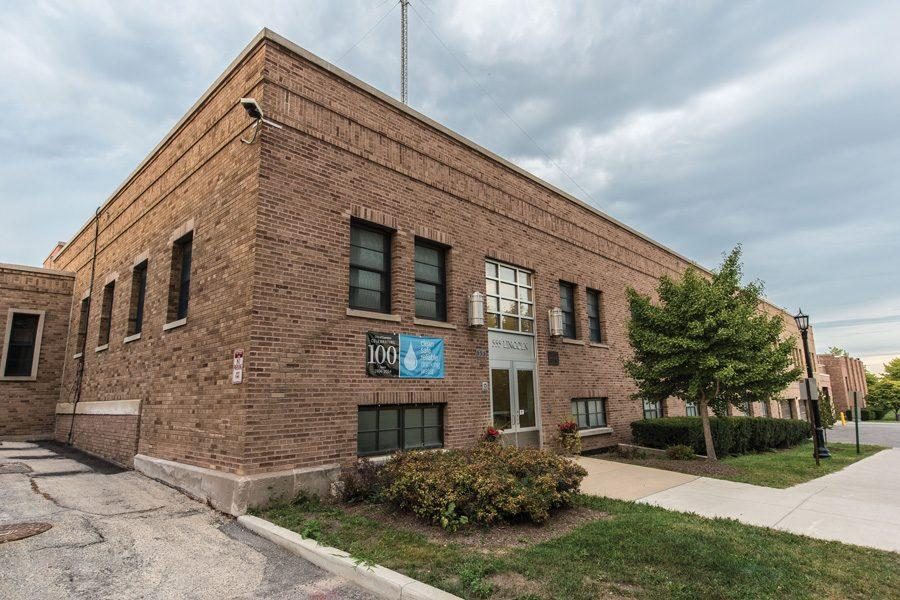Lincolnwood completes construction project connecting to Evanston water supply
Daily file photo by Noah Frick-Alofs
The Evanston Water Plant, 555 Lincoln St. The City Council discussed making replacing lead water pipes more affordable after only 7 percent of applicable residents took advantage of the program.
September 23, 2020
With a ceremonial turning of the valve, Lincolnwood and Evanston leaders celebrated the completion of a water transmission project, making it the 10th community to use Evanston-provided drinking water. Lincolnwood, located five miles southwest, officially switched from Chicago to Evanston’s water in early August after almost a year of construction.
“This project is a win-win for both of our communities,” Mayor Steve Hagerty said in a press release. The project is projected to save Lincolnwood $1.2 million annually, providing Evanston with $500,000 in additional revenue each year.
Andrew Letson, Lincolnwood’s Director of Public Works, said Lincolnwood began to consider changing its water supplier in 2012 because of Chicago’s high prices.
A joint study with several neighboring communities ultimately determined Evanston would be the most cost-effective choice because of its close proximity to Lincolnwood and its relatively low water prices, Letson said.
“Once we made that determination, we worked with them bilaterally to negotiate an agreement, which we wrapped up in 2018,” Letson said. Since then, both communities have been working to design and construct the infrastructure, he said.
Though the two cities share Lake Michigan as a supplier, Evanston and Chicago charge vastly different rates for water. In 2015, the average annual water bill for a single family home in Evanston was $232, while that of a comparable home in Lincolnwood, still contracted with Chicago, was $708. While Chicago was its water provider, Lincolnwood had one of the highest annual water rates in the North Shore.
Jean Ikezoe-Halevi, a member of Lincolnwood’s Board of Trustees, said for years, Chicago’s fluctuating inflation rates governed the cost of the village’s water supply.
From 2002 to 2005, Chicago never raised its water supply rate more than 4 percent a year, but in 2008, the rate increased by 15 percent, kicking off a trend of seesawing yearly rate increases of up to 25 percent.
Evanston, on the other hand, has promised to charge a stable price of $1.60 per thousand gallons of water until 2022, after which the rate is expected to increase 2 percent, Letson said.
Despite the savings, Letson said Lincolnwood residents shouldn’t expect their taxes to fall just yet.
Until 2040, the village will use its savings from switching suppliers to pay the $11.8 million debt incurred from the cost of pipe and roadway construction and to fund improvements to Lincolnwood’s almost 100-year-old water infrastructure, he said.
In the future, Ikezoe-Halevi said residents can expect to save money on their bills. For now, residents can look forward to stable rates.
“Right now with a pandemic, with people out of work and a lot of other problems, they don’t need to see something skyrocket,” Ikezoe-Halevi said. “We’re going to be able to offer that consistency.”
Email: [email protected]
Twitter: @EricaCDavis1
Related Stories:
– Lincolnwood contacts city about buying water as Evanston finalizes deals with Morton Grove, Niles
— Evanston to begin construction on part of new water supply
— Evanston moves forward with plan to sell Lake Michigan water to nearby towns


